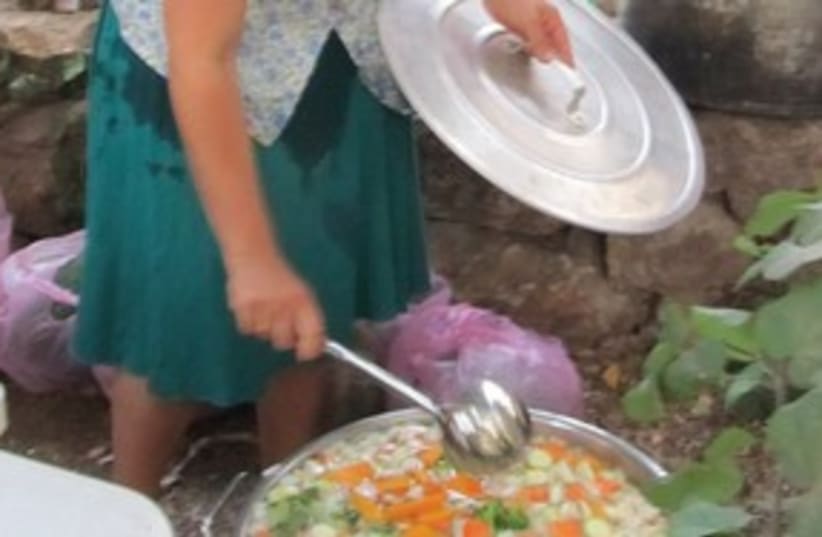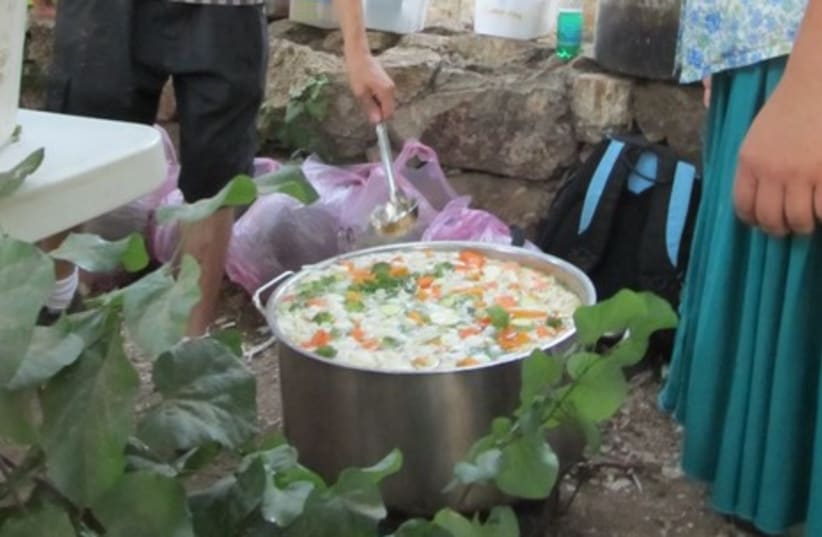
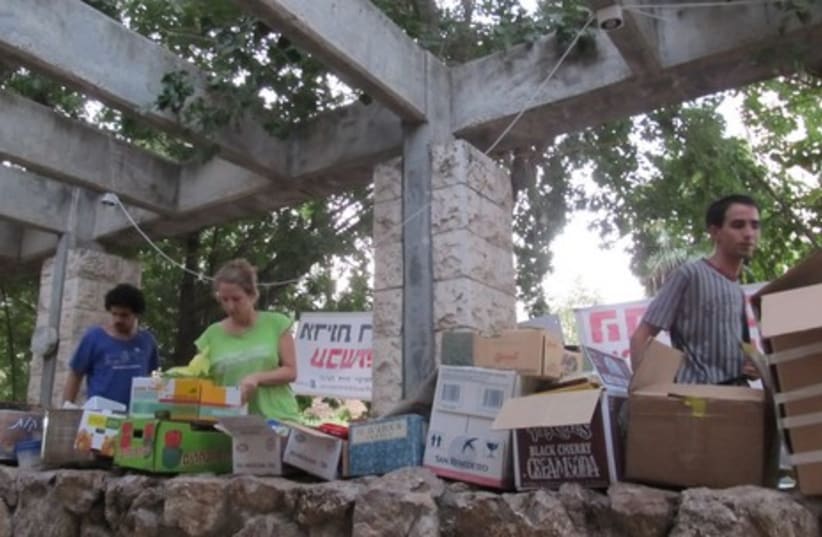
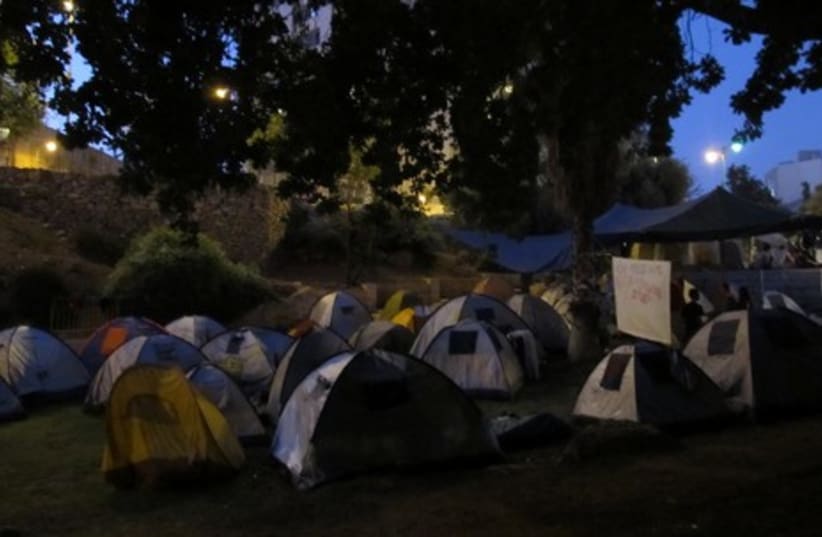
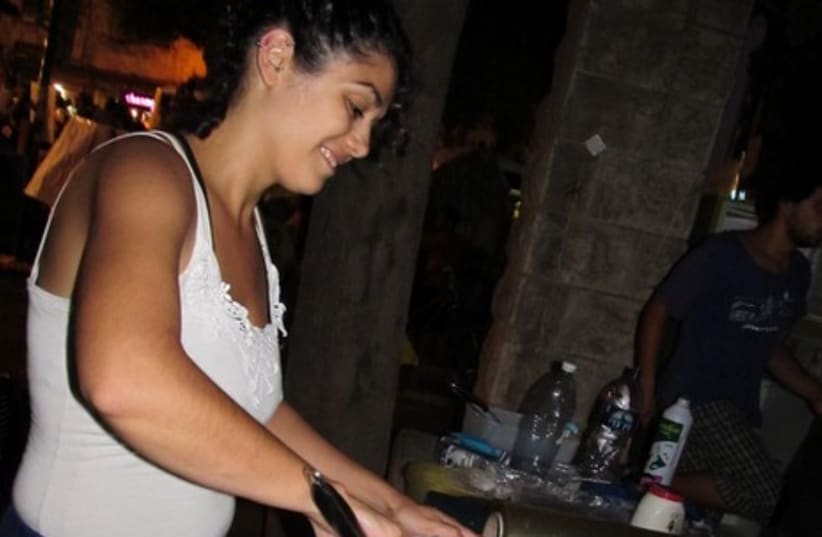
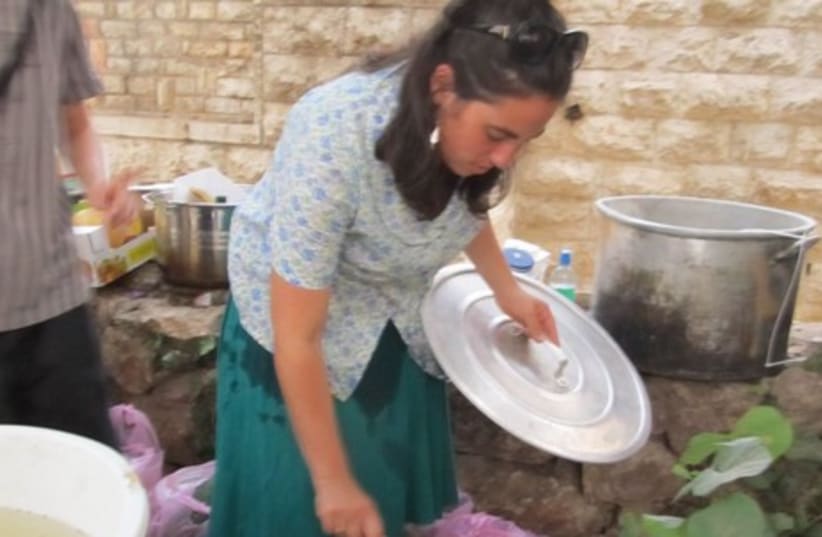

Aside from public pressure on Prime Minister Binyamin Netanyahu to make significant changes in housing policy, a true community-driven spirit has arisen in the tent cities scattered across the country.Nowhere is this more evident than in the kitchens, which are churning out giant pots of pasta and rice to fuel hundreds of hungry activists.The kitchen at the tent city that popped up in downtown Jerusalem starts working in earnest only after the majority of the demonstrators have left for a one-kilometer march to the prime minister’s residence to protest the proliferation of expensive, foreign-owned “ghost apartments” in the capital.Organizers struggle to keep up the enthusiasm. After nearly two weeks of the same chant (“The nation demands social justice!”), they mix in a few improvised songs, one based on a Purim ditty about the evil Haman, with unmistakable references to Netanyahu.At the kitchen, donations have been pouring in all day. People bring their own vegetables from home, and supermarket magnate Rami Levy offered to “empty his storeroom,” says one volunteer named Shahar.“He told us, whatever we need, just tell him and he’ll deliver it,” says Shahar. “But that’s also problematic, because people here have problems with Rami Levy and the way he pays his workers, and he’s really part of the cycle.”Still, the kitchen voted to accept Levy’s donations, including half-a-dozen whole watermelons for dessert. Area restaurants have also pledged donations.The enthusiastic idealism that propelled the demonstrators into the streets in the first place stretches to the tent city kitchen, a hastily erected corner located in Gan Hasus (Horse Park). The area has been outfitted with tables and giant pots, courtesy of a generous kibbutznik who dropped off the cookware earlier in the week.Staffed by young students who are environmentally and socially conscientious, waste is set into piles of trash and compost, and people who are eager to help fight over the five knives. Activists have been instructed to bring their own non-disposable utensils and plates from home in order to cut down on waste.On the menu on Wednesday night is couscous with onions, vegetable soup and cabbage and beet salad, according to Nadav, the unofficial “minister of the kitchen” I heard about upon my arrival. The 28-year-old youth counselor was one of the first demonstrators out in the Jerusalem streets near the Old City walls, where the tents had been set up last week.“I felt like something was really missing – a communal dinner, cold water – so I went home and made a giant pot of rice with vegetables,” he says on Wednesday, in the midst of directing 15 people to cut cabbage and carrots for salads.“The day after that, Friday, I think it was, I wrote on the Facebook wall that I wanted to make a dinner there at 8:00 p.m. I thought there’d be five to 20 people,” he says.Soon, the National Student Union got wind of the announcement and promised to donate funds. Restaurants stepped up with more food donations. Suddenly, he was overseeing a Friday night meal for 70 people.When the tent city moved to Gan Hasus and the activists met to divide up the jobs, “I just ended up being in charge of food,” says Nadav, who has worked in restaurants as a chef for a second job. He was then interrupted by five people who had spent the past week in Tel Aviv: “Hey, where should we put the refrigerator?” asks one, as more people show up, each holding a piece of a partially disassembled and unattractive green refrigerator from the 1970s.The passionate activists, who have been living in tents for almost two weeks, said they are now floating in a strange limbo.“I’m not really sure what day it is,” confides a demonstrator named Ayelet as she watches the soup boil. “I know we were in Kikar Tzahal, and then the Rose Park, and then we came here – but I have no idea what day of the week it is,” she says.“I took off from work almost all of last week. I had to work yesterday, but I’m taking off the rest of this week, as well,” says another volunteer as he struggles to string up electricity so the kitchen workers will have light. “I’m going to feel it next month in my bank account, but we’ll figure it out.”Ayelet, organizing the donations from the day to make sure they hadn’t forgotten anything, asks, “Can we not put paprika in the soup?” Dusk is falling and it’s getting hard to see.
“Why not?” asks Nadav.“Because I can’t eat paprika, I’m allergic,” Ayelet replies.“Come on, you remember, we voted that we can’t deal with rare diseases,” sighs Nadav.As the work continues, more and more people offer to help. It feels like a big kibbutz cookout, or the children’s book Stone Soup, with everyone donating what they can, in small spurts, to make a meal for hundreds of people.What’s the most the ad-hoc kitchen can serve? On Tuesday evening it served 250.“As many as it needs to,” says Nadav, as the activists return from the march to the prime minister’s residence, chanting and waving signs.